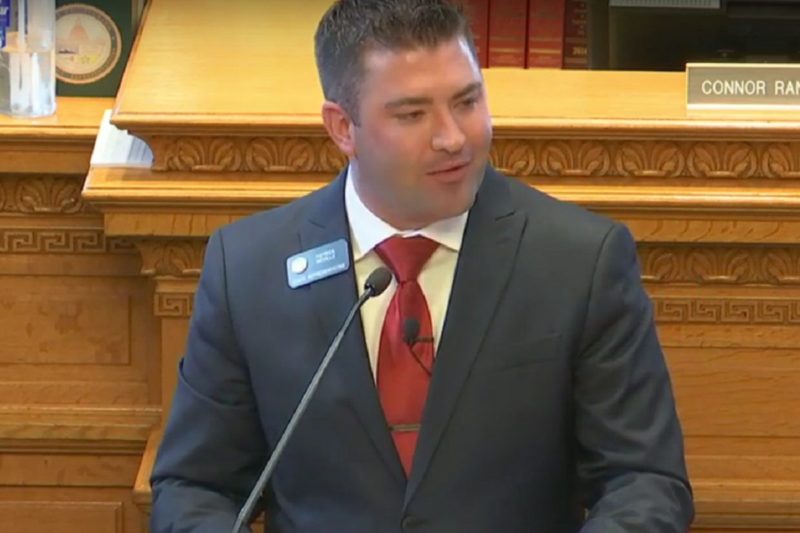Colorado Democrats Quash Trio of Anti-Choice Measures
Republicans in the Colorado legislature pushed a so-called abortion reversal bill, which was dubbed by medical professionals as "quackery" when a similar measure was introduced in Arizona.

Democrats on a Colorado House committee killed three anti-choice bills Thursday night, including a measure that would have required doctors to tell patients about medically dubious abortion “reversal.”
Under the anti-choice measure, a physician would have to tell patients that a pill taken midway through a drug-induced abortion procedure has the “potential” to stop the abortion. A so-called abortion reversal measure was nixed last year in Arizona after a court challenge to the Republican-backed effort.
Medical professionals denounced the Arizona bill as “quackery.” Utah Republicans in November said they would push their own abortion “reversal” legislation, with one Utah GOP lawmaker admitting that “we’re not doctors.”
The Colorado bill’s mandate runs counter to information from the American Congress of Obstetricians and Gynecologists (ACOG), which states that “claims of medication abortion reversal are not supported by the body of scientific evidence, and this approach is not recommended in ACOG’s clinical guidance on medication abortion.”
The GOP-backed Abortion Pill Reversal Act stated that a progesterone pill has the “potential” to reverse the effects of drugs like RU-486, which are used to induce abortions.
A second bill voted down by the Democratic-controlled House Insurance, Health, and Environment Committee would have given legal rights to fertilized human eggs or zygotes, thereby outlawing abortion.
The intent of the legislation, referred to as a “personhood bill,” was, in part, to “make the practice of terminating the life of an unborn child illegal in the state of Colorado,” according to the text of the bill.
“For me, I always say, this is the best bill of the year,” State House Minority Leader Patrick Neville (R-Castle Rock) said Monday in an appearance on local radio, noting that his measure “doesn’t criminalize the women who have an abortion” but, instead, “makes the actual act of performing the procedure” a felony.
“I’m not here to criticize anyone who’s had an abortion,” Neville said on air. “In fact, I’m here to console them.”
Also rejected by the Democratic-majority panel was legislation that would have added medically unnecessary regulatory requirements for abortion clinics.
A similar version of this bill, as well as the personhood measure, died in a Colorado State House committee last year.
This year’s clinic licensing measure did not include a provision, included in the 2016 bill, mandating that clinics have a staff doctor with “admitting privileges at a hospital within the state within 30 miles of the abortion clinic.”
Reproductive rights advocates denounced all three bills, which were voted down in successive 6 to 5 party-line votes.
“We know that when care is made more expensive or access is limited it falls hardest on low-income women and women of color,” Cristina Aguilar, executive director of Colorado Organization for Latina Opportunity and Reproductive Rights (COLOR), said in a statement. “Laws that close clinic doors or make it too expensive to see care do not help anyone. They simply push care out of reach, particularly for marginalized communities that already struggle with disparities in access to health services.”
Prior to Thursday’s committee votes, NARAL Pro-Choice Colorado re-released its 2016 report showing that Colorado’s so-called personhood and clinic-regulation measures were based on copycat legislation produced by the anti-choice legislation mill Americans United for Life (AUL). The organization pointed out in a news release that the Abortion Pill Reversal Act was also based on AUL legislation.
“Colorado is a pro-choice state—we were the first state to legalize abortion, and voters have repeatedly defeated anti-abortion, anti-birth control ‘personhood’ measures at the ballot box,” Karen Middleton, executive director of NARAL Pro-Choice Colorado, said in a news release. “Coloradans strongly believe in in the rights of women to control their own bodies and make their own personal, private medical decisions. But these national groups are determined to put politicians in between women and their doctors, even in a state like ours that believes in individual liberty.”
